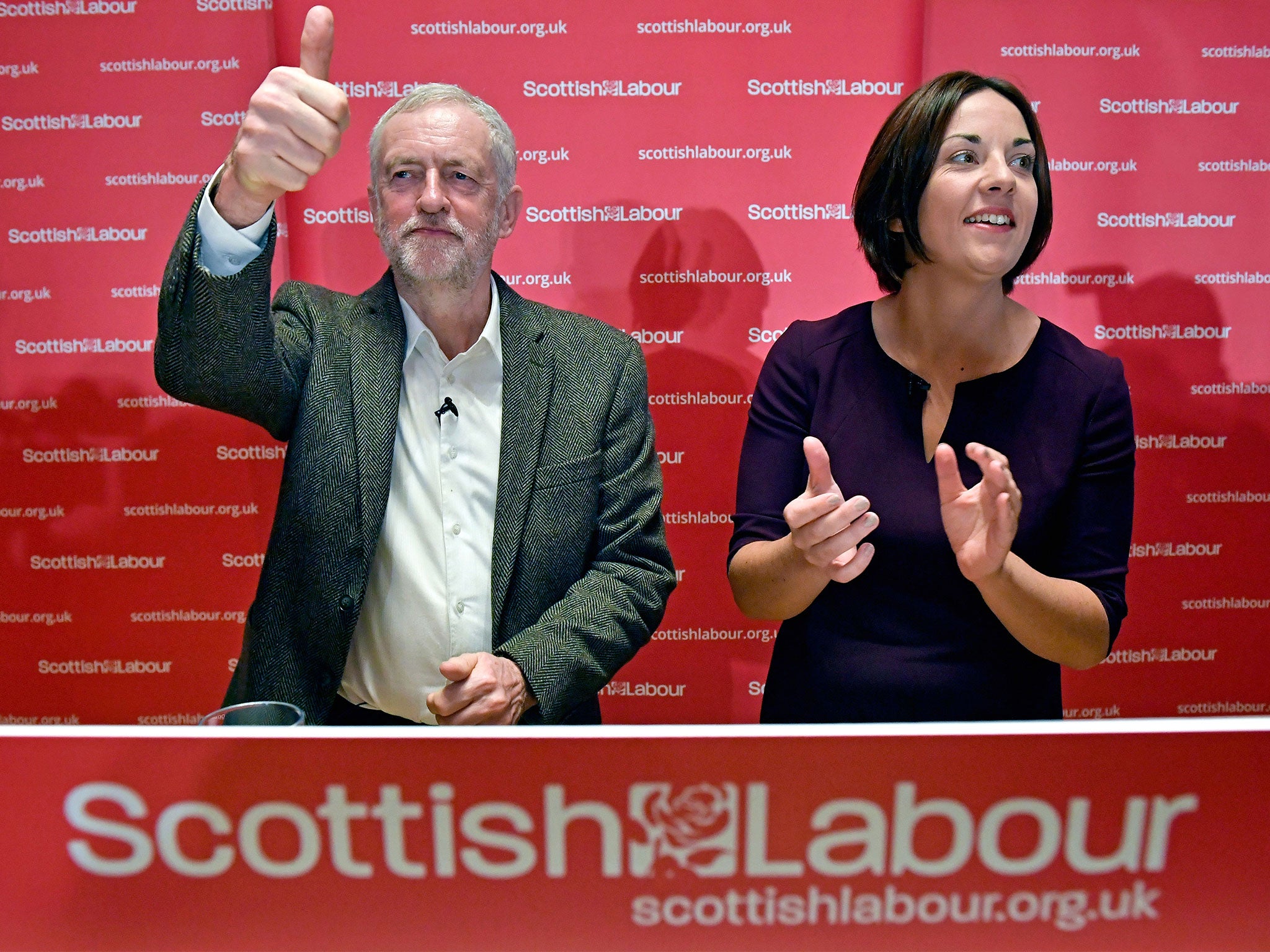Kezia Dugdale has resigned from one of the worst jobs in politics
Without solid support in Scotland it is almost impossible for Labour to win a general election

Your support helps us to tell the story
From reproductive rights to climate change to Big Tech, The Independent is on the ground when the story is developing. Whether it's investigating the financials of Elon Musk's pro-Trump PAC or producing our latest documentary, 'The A Word', which shines a light on the American women fighting for reproductive rights, we know how important it is to parse out the facts from the messaging.
At such a critical moment in US history, we need reporters on the ground. Your donation allows us to keep sending journalists to speak to both sides of the story.
The Independent is trusted by Americans across the entire political spectrum. And unlike many other quality news outlets, we choose not to lock Americans out of our reporting and analysis with paywalls. We believe quality journalism should be available to everyone, paid for by those who can afford it.
Your support makes all the difference.Kezia Dugdale’s resignation as Scottish Labour leader was certainly unexpected and the reasons for it are still unclear. A combination of political complications in her private life, the Corbynista/Campaign for Socialism (a Momentum counterpart) surge (Ms Dugdale was not a member of the Jeremy fan club), and the sheer scale of the challenges may have been behind the move.
At any rate she leaves Labour in Scotland in a better position than she found it, and that has not been true of any of her successors for a long time. At the general election, with seats and votes gained and the SNP’s campaign for a second independence referendum pushed firmly back, there were clear signs of some Labour recovery, though with a long way to go. Mr Corbyn’s latest U-turn on the EU may help Labour make further progress at the expense of the Scottish Nationalists.
Still, Labour has suffered an almighty tumble in Scotland in recent times. One of Ms Dugdale’s former MPs described her role as “the worst job in politics”. Traditionally, though, being Labour’s leader in Scotland was one of the nicer gigs in politics. For decades the lucky incumbent could rely on approaching half the vote, a solid phalanx of fifty or so MPs at Westminster and a seat in the Cabinet in a Labour government or to be Scottish First Minister, after devolution, a Labour achievement, arrived.
Today, though, thanks to mismanagement by Labour nationally and the long-term resurgence of Scottish nationalism, Labour finds itself in a poor third position north of the border, being overshadowed even by the Scottish Conservatives. For too long Labour took its Scottish heartland for granted, and it neglected its base. By the 2000s the consequences of that folly became painfully apparent when the SNP took power in Edinburgh. Yet, as Nicola Sturgeon and her party, in power for a decade, become the Establishment, and Scottish Labour the smaller insurgent challengers, the nationalists will inevitably lose support, as happened at the recent Westminster elections.
The high water marks of the past – when they secured all but three of the Commons seats in Scotland – couldn’t be reasonably sustained in any event. The challenge for the next Scottish Labour leader – who will be the sixth in nine years – will be to see off both the SNP and the Conservatives.
The stakes are high. Without solid support in Scotland it is almost impossible for Labour to win a general election. If Brexit goes as badly as now appears likely, then the very future of Scotland in the UK and in the EU will be at stake. Labour needs a policy on that, and one that can be defended publicly and privately (Ms Dugdale was unwise enough to have suggested to Nicola Sturgeon privately that Labour might have to back another vote on independence, which Ms Sturgeon used to great advantage in public debates). It needs a clearer vision of how much further devolution can be developed without requiring a truly federal UK. And it means that the party’s appeal in Scotland has to rest on politics that have to be distinct from, but therefore in contradiction of, Labour’s national policies. That has led to some unhappy compromises in the recent past.
Compared with the era of Gordon Brown, Robin Cook, George Robertson, Helen Liddell, John Reid and Donald Dewar, Labour is not overendowed with a pool of talent to draw upon, but some capable figures with potential are available. Anas Sarwar, an MSP and Scottish Labour’s health spokesman is one early front runner in a disappointingly male field which will be asking Labour members for support in the forthcoming leadership election. Whoever wins will have cause to be thankful to Ms Dugdale for sticking with it for so long, and will soon discover at first hand the frustrations that were her lot.
Join our commenting forum
Join thought-provoking conversations, follow other Independent readers and see their replies
Comments